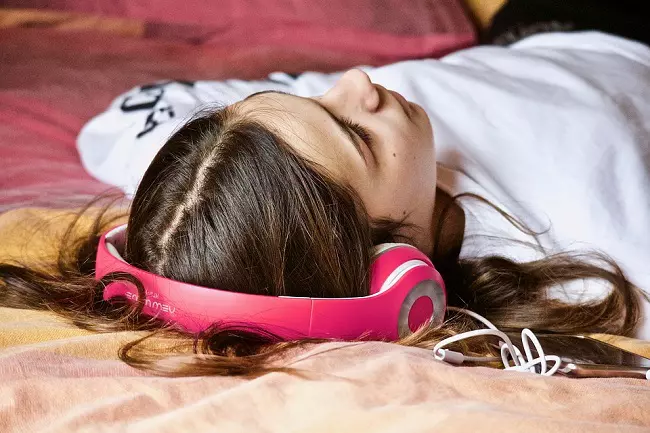How does music affect your health?
Although there are individual differences among the preferred genres, the way we find pleasure in listening to music is a common trait in most of us. It is known that listening to music can improve the mood and help in relaxation to some extent, but other, more interesting effects have also been observed.
Listening to music may even help in reducing pain (Photo: pixabay.com / Luisella Planeta Leoni)
Listening to music may reduce stress
Picking the ideal track can help you feel calmer and less stressed according to studies - what more, it also helps children to feel more relaxed and secure.
A study published in 2015 found that children remained calm for longer when they listened to music than when they were spoken to, no matter what tone the speaking people chose. This might be due to the repetitive pattern of the music, or because music is promoting the body's rhythms to synchronize with the rhythms heard in it. This is nothing really new though, mothers used to sing lullabies to their babies since many centuries...
Music also helps in reducing the anxiety and stress after a surgery, according to a study led by Dr. Catharine Meads from Brunel University, and published in The Lancet in 2015. Researchers analyzed information collected in 72 randomized controlled trials from approximately 7000 patients in order to find out how music can affect people who are undergoing surgery in terms of the amount of pain and anxiety they feel, their need for pain medication and the length of their hospital stay. Researchers found that patients who listened to music reported experiencing less anxiety and pain than those who did not. Those who were played music were also less likely to need pain medication.
Music may promote brain health
From helping dementia patients in memory-related difficulties to promoting recovery after stroke and even treating seizures, music may contribute to brain health in many ways.
According to a study published in 2017 in the Journal of Alzheimer's Disease, music listening programs and meditation may be useful in improving the early cognitive decline among adults with subjective cognitive decline. Researchers looked at how listening to music or taking part in a Kirtan Kriya meditation program affected the 60 people participating in the randomized controlled trial. As they noticed, both the subjective memory function and objective cognitive performance improved among those who listened to music - and improvements were also seen among those who meditated.
Researchers from the University of Helsinki in Finland wrote in a study published in 2008 that stroke patients who listened to music for 2 hours each day had better attention and mood, and also better verbal memory compared to others who listened to audio books or who did not listen to anything. A 2013 study found that stroke patients who regularly listened to music as part of a music therapy experienced more improvements in terms of speech recovery than those who did not listen to music.
A 2015 study conducted by Christine Charyton from The Ohio State University Wexner Medical Center found that music may help in treating epilepsy, as patients respond differently to music than those who live without the condition. As researchers concluded, the brains of epilepsy patients showed
greater synchronization while listening to music.
Music can motivate us to exercise
It's a common sight to see people jogging in the park wearing earplugs, so it may not be a surprise that music can actually help staying motivated when it comes to exercising. A 2018 study published in the journal Psychology of Sport and Exercise concludes that music makes exercise more enjoyable, and music led to 28 percent higher enjoyment among the participants who were asked to walk compared to those who did not listen to music while walking. So next time when feeling too unmotivated to start working out, taking a walk or go jogging, you may want to put your favorite tune on...
Your heart may also benefit from music
The right kind of music may be beneficial to people who suffer from heart conditions, because it can reduce the heart rate, anxiety and stress levels and can lower the blood pressure, as previous studies suggested. Music therapy can also help the heart in contracting and pushing blood properly in the whole body.
Anita Diós
May 2018
